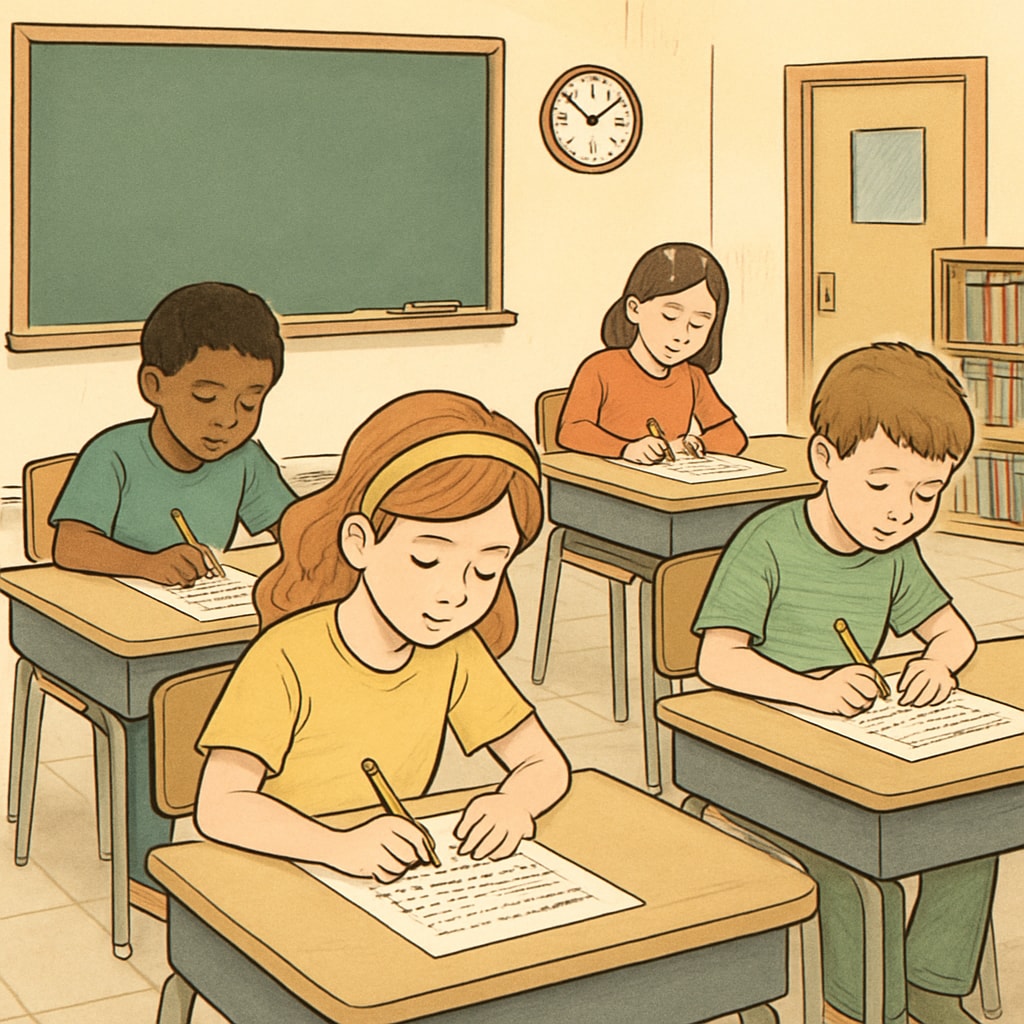The selection process for gifted programs often relies heavily on standardized testing and conventional academic achievements. While these criteria aim to identify high-performing students, they inadvertently exclude many with unconventional learning styles, such as those with ADHD (Attention Deficit Hyperactivity Disorder). This systemic oversight not only deprives these students of opportunities but also diminishes the diversity and richness of gifted classrooms. It’s time to re-evaluate how we define and measure “giftedness” to ensure we recognize the full spectrum of potential, including that of ADHD students.
When Standardized Testing Fails to Capture True Potential
ADHD students often face challenges in standardized testing environments, which emphasize focus, sustained attention, and consistency—areas where ADHD symptoms can manifest as obstacles. However, these same students frequently excel in creative thinking, problem-solving, and out-of-the-box approaches, qualities that are crucial for innovation and leadership. For instance, a child with ADHD might struggle with test-taking strategies but could demonstrate exceptional talent in designing a complex engineering project.
Standardized tests, by design, assess a narrow range of abilities, often neglecting the broader cognitive and creative skillsets that ADHD students possess. Research has shown that ADHD individuals are more likely to excel in divergent thinking, a process associated with creativity and generating multiple solutions to a problem (Divergent Thinking on Britannica). Sadly, these talents are rarely recognized or rewarded within the rigid frameworks of most gifted selection processes.

Gifted Programs and ADHD: A Missed Opportunity
The exclusion of ADHD students from gifted programs represents a missed opportunity—not just for the students themselves, but for the programs as well. Gifted classrooms thrive on diversity of thought, and ADHD students often bring unique perspectives and high levels of creativity. By narrowing the criteria for giftedness, schools inadvertently rob these programs of the richness that comes from varied learning styles and approaches.
Furthermore, ADHD students often demonstrate intense focus and passion when engaged in subjects of personal interest. This phenomenon, known as “hyperfocus,” allows them to delve deeply into topics they find stimulating, often achieving levels of expertise far beyond their peers (Hyperfocus on Wikipedia). Yet, hyperfocus is rarely considered in traditional assessments for gifted programs, which tend to prioritize general performance across all subjects rather than specialized excellence.

Revisiting the Definition of Giftedness
To create a more inclusive gifted education system, schools must adopt a broader definition of giftedness that goes beyond test scores and classroom behavior. This could include:
- Implementing multiple forms of assessment, such as project-based evaluations and teacher recommendations.
- Considering creativity, problem-solving skills, and passion for specific subjects as key indicators of giftedness.
- Providing training for educators to recognize and nurture the potential of ADHD students, ensuring they are not dismissed due to unconventional learning styles.
By embracing these changes, schools can create environments where all students, regardless of their learning differences, have the opportunity to thrive. This not only benefits ADHD students but also enriches the educational experience for their peers by fostering a culture of innovation and inclusion.
Conclusion: Unlocking Hidden Potential
As educational systems continue to evolve, the need for inclusive practices in gifted programs becomes increasingly apparent. By broadening the scope of what we consider “gifted,” we can unlock the hidden potential of ADHD students and ensure they receive the support and recognition they deserve. In doing so, we not only empower these individuals but also cultivate a generation of thinkers and leaders who can approach the world’s challenges from diverse and creative perspectives.
Recognizing the talents of all students, regardless of their learning differences, is not just an act of fairness—it’s an investment in the future. It’s time to redefine giftedness and embrace the contributions that ADHD students bring to the table.
Readability guidance: The article maintains short paragraphs, uses bullet points for clarity, and incorporates transition words to ensure smooth reading flow. Passive voice and long sentences are minimized to enhance accessibility.


